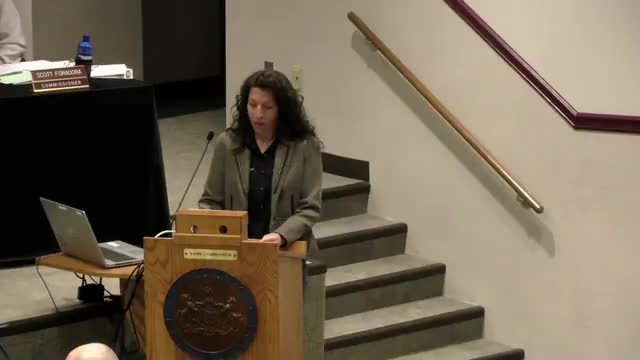Game Commission expands mentored-hunting eligibility to include ag-depredation and snow-goose permits
Get AI-powered insights, summaries, and transcripts
Subscribe
Summary
The Pennsylvania Game Commission voted to amend its mentored hunting rules to allow mentored participants to obtain agricultural deer control permits and snow-goose conservation permits; public speakers urged further changes including restoring tag-holding for very young mentored hunters.
The Pennsylvania Game Commission on April 12 voted to amend its mentored hunting regulation to allow mentored hunters — both mentored youth and mentored adults — to acquire agricultural deer control (AG tag) permits and snow-goose conservation permits.
The amendment, to section 1.47.804 of the commission’s rules, was offered by staff and approved by roll call after a motion, second and brief discussion. Commissioners voted in favor and the motion passed. The measure brings mentored-hunter privileges closer to the Commission’s traditional hunting-license structure and removes a prior barrier that prevented mentored participants from participating in those two permit programs.
Advocates for youth hunting pressed the board during the meeting’s public-comment period. “PA NWTF strongly encourages the Board of Commissioners to re-examine the mentored youth program and remove age restrictions,” said Abby Schierman of the Pennsylvania chapter of the National Wild Turkey Federation, urging the commission to restore broader access for the state’s youngest hunters. Schierman also recommended restoring broader mentored access that existed when the program began in February 2006.
Jonathan Furness, board secretary for the Pennsylvania Federation of Sportsmen’s and Conservationists, told commissioners that proposals such as a mentor-youth trapping permit will require legislative changes but said involving youth early is essential. “Getting our youth involved as early and often as possible gives us the best chance to recruit and retain them for the future,” Furness said.
Commissioner Robert Schwall (statement read on his behalf) asked staff to evaluate whether mentored hunters under age 7 should again be permitted to hold their own tags. “I believe that restriction is unnecessary and penalizes the adults who are taking young hunters afield,” the statement said. The president asked staff from law enforcement and the Bureau of Wildlife Management to review Schwall’s request and report back.
The vote adopted the staff recommendation to expand mentored-hunter eligibility to the two permit types; it did not itself change the mentored-age restriction on who may hold tags. Commissioners and staff said they would review the age/ tag-holding issue and return with any recommended changes after evaluating biological and enforcement implications.
Why it matters: The change enables mentored participants to participate formally in two permit programs used primarily to address crop depredation and localized waterfowl management, potentially increasing the number of licensed participants available to assist landowners and conservation programs. At the same time, commissioners signaled they expect staff to analyze biological, administrative and enforcement impacts before making further changes to age or tag-holding rules.
Next steps: Staff from the Bureau of Wildlife Management and law enforcement were asked to evaluate the tag-holding age restriction and other mentored-program details and report back to the board for possible future action.
